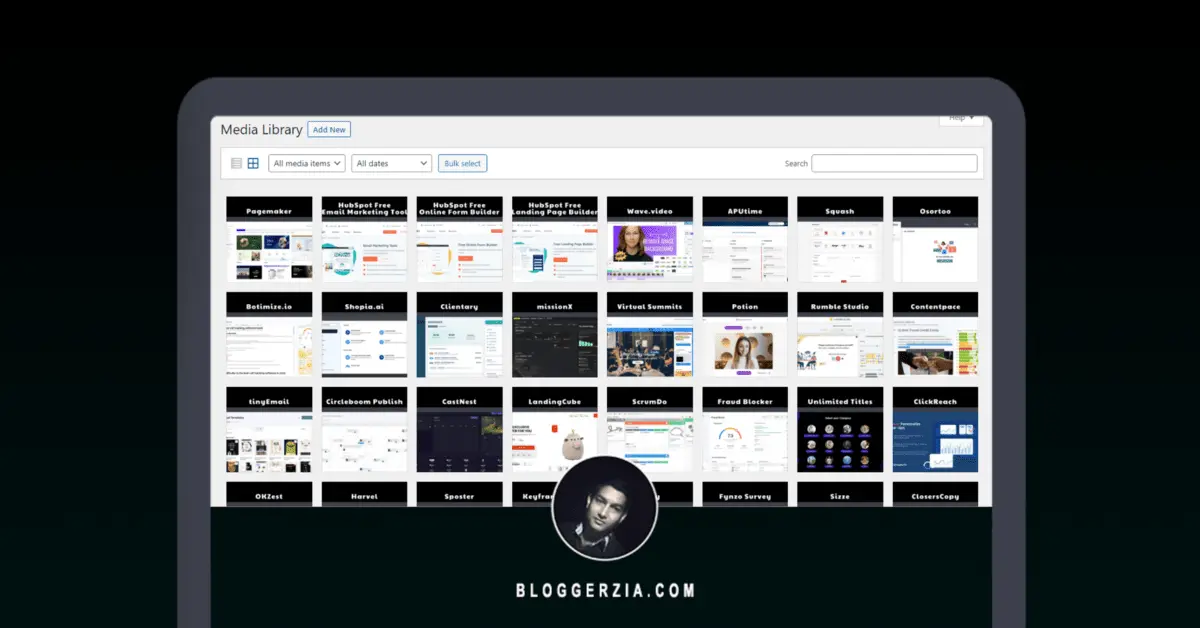If you’re looking for the best shared hosting providers for beginners, I highly recommend Bluehost and Hostinger.
If you’re new to the world of blogging and want to start your own blog, this guide is here to help you understand shared hosting and make the right choices. Shared hosting is an important starting point for beginners, offering an affordable and user-friendly solution to host your blog on the internet.
In this guide, I’ll break down the basics of shared hosting, explain how it works, and highlight the advantages it offers. I’ll also walk you through the key factors to consider when buying shared hosting, such as reliability, storage, speed, support, and scalability.
To make an informed decision, I’ll provide tips on researching and comparing different hosting providers. I’ll guide you through the process of narrowing down your options and finding the right hosting plan for your blog.
By the end of this guide, you’ll have a solid understanding of shared hosting and the knowledge to confidently start your blogging journey. Let’s dive in and get your blog off to a great start!
Understanding Shared Hosting
Shared hosting is a type of web hosting that is perfect for beginners who want to start their own blog. When you choose shared hosting, it means that you are sharing a server with other website owners.
Imagine you and your friends decide to order a pizza together. The pizza represents the server, and each friend represents a website owner. You all share the cost of the pizza, making it an affordable option for everyone. Similarly, shared hosting allows you to share the cost of server resources, such as storage space and bandwidth, among multiple website owners.
Pros of Shared Hosting:
- Cost-effective: Shared hosting is budget-friendly, as the expenses are shared among multiple users.
- Easy to set up: Hosting providers offer user-friendly interfaces and simplified setups, making it beginner-friendly.
- Technical maintenance: The hosting provider manages server maintenance, security updates, and software installations, saving you time and effort.
- Support available: Hosting companies provide customer support to assist with any issues or questions you may have.
- Scalability options: Shared hosting plans often provide options to upgrade your resources as your blog grows.
Cons of Shared Hosting:
- Limited resources: Since resources are shared among multiple websites, there may be limitations on storage, bandwidth, and processing power.
- Performance fluctuations: If another website on the same server experiences high traffic or resource usage, it can potentially impact the performance of your website.
- Customization restrictions: Shared hosting may have limitations on certain configurations and software installations.
- Security concerns: In shared hosting, the security of one website can potentially impact others. However, hosting providers implement measures to mitigate risks.
Remember, shared hosting offers an affordable and beginner-friendly option to start your blog. It’s like sharing a pizza with friends – you enjoy cost savings and convenience. However, it’s important to consider the pros and cons before making a decision.
In the next section, I’ll explore some important considerations and potential limitations of shared hosting to help you make an informed decision.
Key Factors to Consider When Buying Shared Hosting
Here are the key factors to consider when buying shared hosting:
- Reliability and Uptime
- Storage and Bandwidth
- Performance and Speed
- Support and Customer Service
- Scalability and Upgradability
Reliability and Uptime
When choosing shared hosting for your blog, it’s important to consider the reliability and uptime of the hosting provider. Reliability refers to the consistency and stability of the server, ensuring that your blog remains accessible to visitors at all times.
Imagine you’re planning a party and you want all your friends to attend. You would choose a reliable venue that doesn’t cancel on short notice or have frequent power outages. Similarly, you want a hosting provider that offers reliable service and guarantees high uptime.
Look for hosting providers that have a good reputation for server reliability. They should provide a Service Level Agreement (SLA) that promises a certain percentage of uptime, ideally 99.9% or higher. This means your blog will be available to visitors almost all the time.
Additionally, read customer reviews and testimonials to gauge the experiences of other users. Positive reviews and feedback about the hosting provider’s reliability are indicators of a trustworthy service.
Storage and Bandwidth
Another important factor to consider when buying shared hosting is the storage space and bandwidth provided. Storage space is the amount of disk space available to store your blog’s files, such as text, images, and videos. Bandwidth, on the other hand, refers to the amount of data that can be transferred between your blog and its visitors.
Think of storage space as the size of a wardrobe to store your clothes and bandwidth as the width of a road that determines how much traffic can pass through. You want sufficient storage space to accommodate all your blog’s content and enough bandwidth to handle the traffic generated by your visitors.
Consider the size of your blog and the types of content you plan to publish. If you post lots of high-resolution images or videos, you may need more storage space. Similarly, if you expect your blog to attract a large number of visitors, choose a hosting plan that offers ample bandwidth to handle the incoming traffic.
Performance and Speed
The performance and speed of your blog are crucial for a positive user experience. Slow-loading websites can frustrate visitors and make them leave before exploring your content.
Imagine you’re waiting in a long queue to buy tickets for a popular movie. The longer the queue, the more impatient you become. Similarly, visitors to your blog may get impatient if it takes too long to load.
When choosing shared hosting, inquire about the server’s performance and speed. Consider factors like server location, caching mechanisms, and content delivery network (CDN) options.
A server closer to your target audience will result in faster loading times. Caching mechanisms and CDNs can also improve website performance by storing and delivering content more efficiently.
Support and Customer Service
Good customer support is essential when buying shared hosting. As a beginner, you may encounter technical issues or have questions about managing your blog.
Imagine you’re assembling a complicated piece of furniture and you need help with the instructions. You would want assistance from a knowledgeable and friendly customer support team. Similarly, when running into issues with your hosting, you’ll want reliable support to help you out.
Look for hosting providers that offer 24/7 customer support through various channels like live chat, email, or phone. Read reviews or ask for recommendations to ensure their support team is responsive, helpful, and capable of addressing your concerns.
Scalability and Upgradability
As your blog grows, you may need to scale up your hosting resources to accommodate increased traffic and demands. Therefore, it’s important to consider the scalability and upgradability options provided by the hosting provider.
Imagine you’re starting a small business, but you anticipate future expansion. You would want a location that allows you to expand your store or office space when needed. Similarly, you should choose a hosting provider that offers easy upgrades to higher-tier shared hosting plans or the option to transition to a more powerful hosting solution like VPS or dedicated hosting.
Check if the hosting provider allows seamless upgrades without causing downtime or data loss. Flexibility in upgrading your hosting plan will ensure your blog can grow along with your aspirations.
By considering these key factors when buying shared hosting, you can make an informed decision and choose a hosting provider that best suits your blog’s needs.
In the next section, I’ll delve into the process of researching and comparing different shared hosting providers to help you find the right one for your blog.
Researching and Comparing Shared Hosting Providers
When it comes to choosing a shared hosting provider for your blog, it’s important to invest some time in researching and comparing different options. This will help you find a provider that meets your requirements and offers the best value for your money. Here are some steps to guide you through the process:
- Determine your needs: Before you start researching hosting providers, identify your specific needs and priorities for your blog. Consider factors like the expected traffic, storage requirements, and any special features or applications you may need.
- Seek recommendations: Reach out to friends, colleagues, or fellow bloggers who have experience with shared hosting. They can provide valuable insights and recommendations based on their own experiences.
- Read reviews and testimonials: Look for online reviews and testimonials from customers who have used the hosting providers you’re considering. Pay attention to both positive and negative feedback to get a balanced perspective.
- Compare pricing and features: Visit the websites of different hosting providers and compare their pricing plans and features. Look for key aspects such as storage space, bandwidth, email accounts, website builders, and any additional features that may be important to you.
- Check customer support: Review the customer support options provided by each hosting provider. Look for 24/7 support availability, multiple contact channels (such as live chat, email, or phone), and positive feedback regarding their responsiveness and knowledgeability.
- Consider server locations: If your target audience is specific to a particular region or country, consider choosing a hosting provider with server locations in that area. This can help improve website loading times and overall performance for your target audience.
- Look for uptime guarantees: Check if the hosting providers offer uptime guarantees in their Service Level Agreements (SLAs). Look for a minimum uptime guarantee of 99.9% or higher to ensure that your blog remains accessible to visitors most of the time.
- Assess scalability options: Evaluate the scalability options provided by the hosting providers. Determine if they offer easy upgrades to higher-tier shared hosting plans or the flexibility to transition to other hosting solutions as your blog grows.
- Consider security measures: Look for hosting providers that prioritize website security. Check if they offer features like SSL certificates, regular backups, malware scanning, and robust firewalls to safeguard your blog’s data and protect it from potential threats.
- Check user-friendly interfaces: Consider the user-friendliness of the hosting provider’s control panel and interface. A user-friendly interface will make it easier for you to manage your blog and perform administrative tasks without needing advanced technical knowledge.
By thoroughly researching and comparing different shared hosting providers, you can make an informed decision that aligns with your blog’s needs and goals. Remember to take your time, weigh the options, and choose a provider that offers the best combination of features, reliability, customer support, and affordability.
In the next section, I’ll guide you through the process of purchasing and setting up your shared hosting plan, getting you one step closer to launching your blog.
Setting Up Your Blog with Shared Hosting
Once you have chosen a shared hosting provider that meets your requirements, it’s time to set up your blog. Here’s a step-by-step guide to help you through the process:
- Domain registration: If you haven’t already registered a domain name for your blog, you can do so through your hosting provider or a separate domain registrar. Choose a domain name that reflects your blog’s topic and is easy for visitors to remember.
- Select a hosting plan: Determine the shared hosting plan that suits your needs and budget. Consider factors such as storage space, bandwidth, scalability options, and any additional features you require. Most hosting providers offer different plans to cater to various needs.
- Purchase the hosting plan: Follow the instructions on the hosting provider’s website to complete the purchase of your chosen hosting plan. Provide the necessary details, including your domain name, billing information, and any other required information.
- Set up your account: Once you have completed the purchase, you will receive login credentials and instructions to access your hosting account. Log in to the hosting provider’s control panel or dashboard, which is typically a user-friendly interface that allows you to manage your hosting services.
- Install a Content Management System (CMS): Choose a CMS to build and manage your blog. WordPress is a popular choice due to its user-friendly interface and extensive range of themes and plugins. Most hosting providers offer a ‘one-click installation’ option for WordPress and other CMSs, making the setup process quick and straightforward.
- Configure your blog: After installing the CMS, you can begin customizing your blog. Select a theme that suits your blog’s style and layout preferences. Customize the appearance, layout, and navigation menus to create a visually appealing and user-friendly blog.
- Install essential plugins: Plugins add functionality to your blog. Install essential plugins such as those for search engine optimization (SEO), caching, security, and social media sharing. These plugins enhance your blog’s performance, security, and user experience.
- Create and publish content: Start creating your blog posts and pages. Write engaging, informative, and well-structured content that resonates with your target audience. Incorporate relevant images, videos, and other multimedia elements to enhance your content.
- Optimize for SEO: Ensure your blog is search engine optimized to improve its visibility and attract organic traffic. Focus on optimizing meta titles, descriptions, headings, and URLs. Use relevant keywords naturally throughout your content. Install an SEO plugin to assist you with optimizing your blog for search engines.
- Test and launch your blog: Before launching your blog to the public, thoroughly test its functionality, responsiveness, and performance. Check for any broken links, formatting issues, or other errors. Preview your blog on different devices and web browsers to ensure it looks and functions properly.
- Configure backups and security: Set up regular backups of your blog’s data to protect against data loss. Implement security measures such as enabling SSL certificates, utilizing strong passwords, and regularly updating your CMS and plugins to safeguard your blog from potential vulnerabilities.
Congratulations! You have successfully set up your blog with shared hosting. Now, it’s time to consistently create valuable content, engage with your audience, and promote your blog to attract visitors.
If you want me to set up your WordPress blog for free, then read this guide.
Recommended Shared Hosting Providers for Beginners
When it comes to choosing a shared hosting provider for your first blog, it’s important to select one that is beginner-friendly, reliable, and offers great value. Here are five recommended shared hosting providers that cater to beginners:
- Bluehost: Bluehost is a popular choice among beginners due to its user-friendly interface and excellent customer support. They offer a wide range of hosting plans, including shared hosting, with one-click installations for popular CMSs like WordPress. Bluehost also provides reliable performance and 24/7 customer support to assist you every step of the way.
- Hostinger: Hostinger is known for its affordable shared hosting plans, making it an attractive option for beginners on a budget. They offer a user-friendly control panel and a streamlined interface, making it easy to set up and manage your website. Hostinger also boasts fast loading times, reliable performance, and 24/7 customer support.
- HostGator: HostGator is a beginner-friendly hosting provider with a user-friendly control panel and a wide range of features. They offer affordable shared hosting plans, 24/7 customer support, and a 45-day money-back guarantee. HostGator’s hosting plans provide a good balance between performance, reliability, and cost-effectiveness.
- Namecheap: Namecheap, known primarily as a domain registrar, also offers shared hosting services tailored for beginners. They provide user-friendly hosting plans with a range of features at competitive prices. Namecheap’s hosting plans include a user-friendly control panel, website builders, and one-click installations for popular CMSs like WordPress. They prioritize security and offer free SSL certificates with their hosting plans.
- DreamHost: DreamHost is a reliable hosting provider that offers shared hosting plans suitable for beginners. They provide a user-friendly control panel, 24/7 customer support, and a 97-day money-back guarantee. DreamHost focuses on performance and security, ensuring that your blog runs smoothly and remains protected.
These hosting providers have a good reputation in the industry and cater to the needs of beginners. It’s recommended to explore their websites, compare their plans and features, and choose the one that aligns best with your requirements and budget.
Remember to consider factors such as pricing, storage and bandwidth, customer support, performance, and additional features when making your decision.
Conclusion
In conclusion, shared hosting is an excellent choice for beginners starting their first blog. It offers affordability, user-friendly interfaces, and technical maintenance handled by the hosting provider. Additionally, shared hosting provides reliable customer support and scalability options to accommodate your blog’s growth.
I discussed the advantages of shared hosting, including its cost-effectiveness, user-friendly interface, technical maintenance, customer support, and scalability. These benefits make shared hosting a suitable option for beginners who want to focus on creating content rather than managing technical aspects.
However, it’s important to consider factors such as reliability, storage and bandwidth, performance, customer support, and scalability when buying shared hosting. Researching and comparing different hosting providers allows you to make an informed decision based on your specific needs and priorities.
Once you have chosen a hosting provider, setting up your blog with shared hosting involves steps such as domain registration, selecting a hosting plan, purchasing the plan, installing a CMS, customizing your blog, creating content, optimizing for SEO, and ensuring backups and security measures are in place.
Remember, launching your blog is just the beginning. Consistently creating valuable content, engaging with your audience, and promoting your blog will help it grow and thrive.
Now that you have a solid understanding of shared hosting and the steps to get started with your blog, it’s time to take action. Embrace the opportunities that shared hosting provides, unleash your creativity, and share your unique voice with the world through your blog.
Happy blogging!





